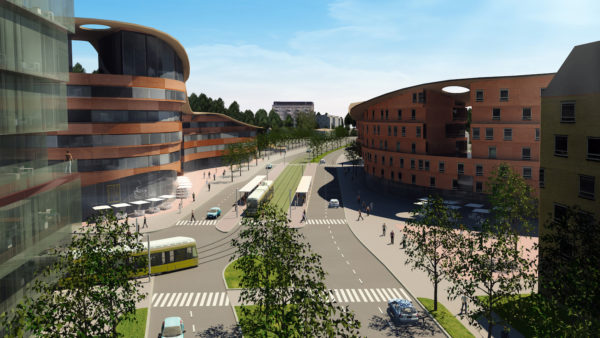This experiment in joined-up city systems is designed to help UK companies tap into a market thought to be worth billions.
Imagine apps that let you see exactly how long you’re going to have to wait at any hospital in the city, or to check whether the supermarket is more crowded than you can handle.
If you’re a city manager, imagine being able to monitor live footfall and retail demand to see which areas are doing well and which need help, or to monitor overall energy usage so you can store it when demand is low and release it when demand is high.
These are some of the examples of the joined-up management of city systems about to be piloted by Glasgow, in Scotland. It won the UK government’s Future Cities Demonstrator competition, and has 18 months and US$38m in prize money to spend to start showing how a city could get its act together.
Last year, the UK launched the competition in its hunt for ideas and Glasgow won against 30 other contenders. Led by the city council with involvement from companies and academic organisations, the project will develop a "city observatory", to be hosted by the University of Strathclyde.
"This will allow academic, business, and industry researchers to analyse more than 200 information feeds about Glasgow, its health, economy, transport, energy use, to map the relationships between them and to understand how a 21st century city operates," said Professor Sir Jim McDonald, principal of the university.
"Winning this money will put us years ahead of other UK cities, in terms of integrating our technological systems to make them work for and talk to each other," said Gordon Matheson, leader of Glasgow City Council. "This will help us to create a more efficient and a more sustainable city which can adapt and move ahead of the technology of the day and make it work for everyone who lives or works in Glasgow."
Results from Glasgow experiment will be shared with UK businesses so they can develop new urban solutions to sell around the world. And here we come to the point of all this.
Richard Miller, head of sustainability for the government’s Technology Strategy Board, which organised the competition, told GCR that the goal is to help UK companies cash in on a city integration market that could be worth £200bn a year by 2030.
"It has been estimated that around 10 trillion dollars will be spent over the next 10 to 15 years on infrastructure, but we’re not going for that," he said. "Much of that is stuff we know how to do, concrete, trams and so on. The market we see is integration.
"Siemens have created a cities division. A number of the big infrastructure players have cities business teams or departments because they see that they can reorganise some of what they’re already doing into an offering for cities specifically."
"When you look at that element of the market you get a number of around £200bn per annum by 2030," said Miller. "The number’s wrong, because any number that far out will be wrong, but nobody’s looked at it and said that’s ridiculous. So the opportunity is somewhere around there. That’s the market we’re targeting."
Miller says the key is to break down the management silos separating city systems such as transport, infrastructure, energy, and buildings.
"If you’re able to think about the city as a system of systems then you can stop the bad stuff happening. You can deal with some of those environmental and population density challenges. You can create a thriving, buzzing, nice place where people want to live with their families, and you can open up new kinds of economic activity that were not deliverable before. It’s not just about the cost of managing the city, it’s what it unleashes for the city to be able to do."










